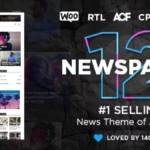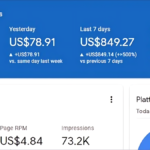When bidding on a keyword in your PPC campaigns, you must select a keyword match type, which informs Google how aggressively or restrictively you want your advertisements to match user queries. When advertising with Google Ads, you have three keyword types match to choose from:
What are keyword matching types?
Search engines use keyword matching to determine if your search query is a match for a given site. Keyword matching is the process of looking at the words in your query and comparing them to those on the page. This means that search engines can only find exact matches and not phrases or even combinations of words that may appear together on a page.
they all match and they each have their unique advantages. Let’s take a closer look at how they work and how you can use them to get more results for your search ads.
The three types of keywords are:
Phrase Match – The most common type of keyword, which looks for exact matches. For example, if you searched for “car” on Google, it would return results like Toyota, Hyundai, etc.
Broad Match – With a broad match, the search ad will show up when someone searches for words that are similar to your keyword or target keyword but do not exactly match them. For example, if your target keyword is “Ford” and you set up broad matches with words like “Fords” or “Ford cars,” then those terms would bring in enough traffic to make it worthwhile even if they didn’t exactly match the exact text of your targeted keyword. Some people call this “broad keyword.”
Exact Match – An “exact match” keyword search means that Google will only look at exact matches for your keywords. So if you had four keywords with “car insurance” as one of them and you wanted to target those searches using ads, you would use an exact match keyword search for “car insurance.”
What effect do match types have on your search ad results?
Match categories have a significant impact on the efficacy of your account because they determine which search queries you’re bidding on. There are several important factors to consider when selecting the match type for each query.
1 Performance to date — The performance of a keyword or group of keywords can reveal which match type will yield the highest return on investment.
2 Competitors — How your competitors bid on particular words and structure their accounts, as well as how their accounts have historically performed, will all have an impact on the return you see from certain match types.
3 Bids — Cost per click and cost per conversion are strongly affected by bids – often advertisers use various bid manipulation methodologies and commonly bid more or less actively based on the match type – this can heavily influence which match type is most appropriate.
4 Ad text and account structure — Many advertisers will separate a “money” keyword and run it on the broad, phrase, and exact match types, possibly segmenting those match types and writing separate ads for each. How an advertiser structures an account can also have a great impact on the performance of diverse match types.
Conclusion
In your Google Search Campaign, there are three different match types for keywords. broad match, phrase match, and exact match. For the best campaign results, we strongly advise using a variety of match types. The use of match types performs a strategic role in the overall campaign setup, so if you’re not sure what combination is best for you or how to best take advantage of match types, please contact us.










